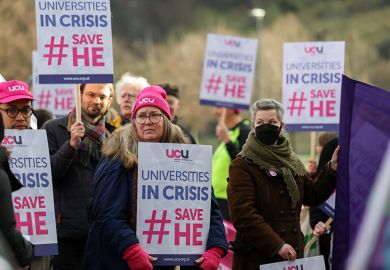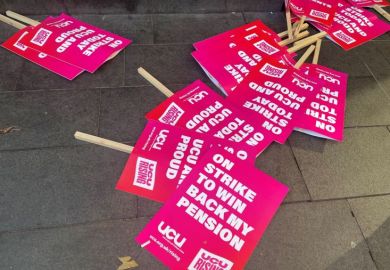Hundreds of Unison members at the University of Birmingham are set to go on strike over pay, amid wider concerns about how the institution is being run.
A total of 51.3 per cent of support staff members voted in the ballot, with 78.6 per cent supporting strike action.
The first strike date is on 28 June, with nearly 600 members of the university’s Unison branch called out to action and with plans to ask all members of staff “not to cross the picket line”.
Support staff at Birmingham, including caterers, cleaners and security guards, negotiate on pay locally with university management. They held the strike ballot in response to a 2 per cent pay rise offered for 2018-19.
Union members are looking for the university to exceed retail price index inflation (2.8 per cent for 2018) and to make up for some of the pay lost to inflation in previous years.
“There is a lot of desire on campus for things to change,” said Mike Moore, joint Unison branch secretary at Birmingham.
While the strike ballot was solely about pay, it forms part of a “wider campaign” and is about trying to get “the employer to listen to us and negotiate with us about improving things on campus”.
Campaign aims include a push for the university to get “living wage” accreditation and concerns over last year’s outsourcing of close to 40 staff at the new Edgbaston Park Hotel, a wholly owned subsidiary company.
New staff recruited at the hotel are on the minimum wage rate of £8.21 per hour and have “worse terms and conditions” than their counterparts on university contracts, said Mr Moore.
“We are worried about the precedent it might set for other departments of the university,” he added. “We would really like them to commit more formally to no outsourcing here.”
Mr Moore also hit out at the “hypocrisy” of spending vast sums on new buildings and on vice-chancellor David Eastwood’s £444,000 pay packet, while not giving the “lowest-paid staff at the institution” a fair wage.
He said the first step was to get a revised pay offer and “then start to work on these other issues”.
A Birmingham spokesman said the university was “disappointed” by the strike ballot, highlighting that the 2 per cent increase was “exactly in line with the settlement for staff covered by national pay bargaining arrangements, where Unison has not taken industrial action”.
“It is a matter of regret that strike action comes as we were intending to open talks on a settlement for the pay year beginning this August, which, in addition to the normal discussion about an increase related to inflation factors, would focus on a restructuring and modernisation of the pay and reward arrangements for the university’s support staff, which the university has pledged to fund when agreement has been reached,” the spokesman said.
“We are now prevented from opening talks due to the proposed action. We have only this week repeated the offer to discuss future pay arrangements, but Unison has refused to do so, instead being set on action.”
Register to continue
Why register?
- Registration is free and only takes a moment
- Once registered, you can read 3 articles a month
- Sign up for our newsletter
Subscribe
Or subscribe for unlimited access to:
- Unlimited access to news, views, insights & reviews
- Digital editions
- Digital access to THE’s university and college rankings analysis
Already registered or a current subscriber? Login








